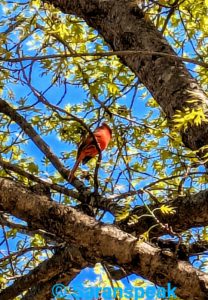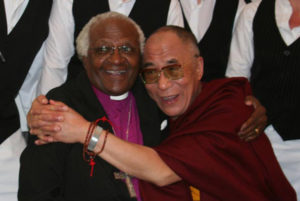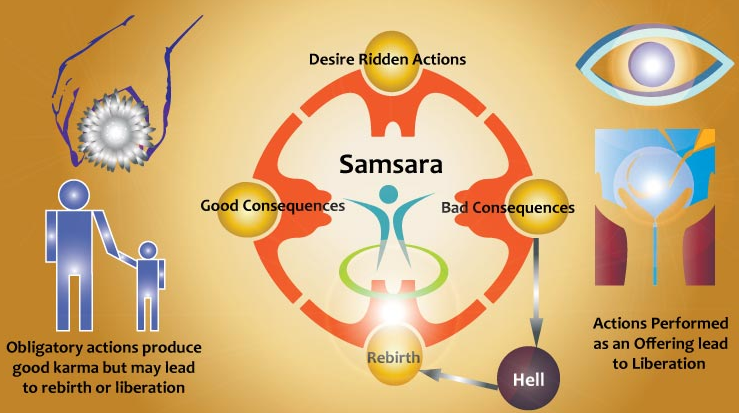
I met this lady in a Richardson Park on a nice spring morning in late March as she was walking her little dog and she wondered what 911 Day of Service meant on the banner hung on the outdoor park pavilion iron bars. This lady with years of life on her face, was curious and ventured up to the registration desk we had set up in that pavilion. She had seen many folks wearing the bright yellow-orange T-shirts doing the dirty work of picking up the litter around the park.

She was genuinely interested, and genuinely thankful that we paid attention to the litter that had accumulated in this otherwise lovely park with a creek and a bountiful of while swans & ducks adorning the rock barrier meant to contain the debris floating down from upstream.
She noted that many people do not care about simply taking care of their surroundings. That upset her. She wondered if we were a religious group. I explained ‘we are a Hindu faith-based group, but not focused on religion. We use our unique religious inspiration that guides us – all living and non-living beings are part of the one same whole. Taking care of ourselves necessarily requires us taking care of them all at the same time. She was happy to hear that.
She introduced herself as a Messianic Jew. As a child she had understood Jesus Christ to be a messenger but not the Son of God, who sacrificed for the sinning humans. Now she had found a savior in her Lord, Christ.
She was a little unsure about how to ask the question, but she wanted to know who our ‘Lord’ was in Hinduism. My answer was simple: we do not have one ‘Lord’, but we believe, and know, that we all have One Source. We give that source a variety of names – Shiva, Krishna, The Energy, or God etc. Beyond that Truth we differ; we hold different beliefs about how this ‘Lord’ operates his /her universe. To us Hindus that difference is not highly consequential, if these beliefs lead their followers to find positivity, direction, and strength in their own lives, and help develop a loving society.
This conversation jogged her memory. She told me about a beautiful interview she had watched some time ago between two men – a Christian leader and….. a Hindu leader (she thought). She couldn’t remember the details. Search as she tried to do, she did not find the name of that Hindu leader. She noted how the two men, coming from very different backgrounds, were able to find love in their hearts for each other.
I could relate to that idea, I explained. If the two men related with each other on a spiritual level where they knew they had the same source and did not focus much on the differences in their beliefs (which, by definition, cannot be known since they are not knowledge) then such love was possible. I ruminated that in the world today, the focus was on arguing who was right about their beliefs, and that causes strife. She seemed to agree.
to that idea, I explained. If the two men related with each other on a spiritual level where they knew they had the same source and did not focus much on the differences in their beliefs (which, by definition, cannot be known since they are not knowledge) then such love was possible. I ruminated that in the world today, the focus was on arguing who was right about their beliefs, and that causes strife. She seemed to agree.
She grew curious. She wanted to know more about Hindu beliefs on Heaven and Hell. Did we believe in such a thing? This has been a topic of another blog I wrote previously – Can Hindus Ever RIP. Heaven and Hell are merely an accounting system for our Karma. What we do right, according to our considered obligation as humans, opens the doors to heaven where we could enjoy the fruits of our Karma. What we do wrong – unethical, inhuman or such – gives us an entry pass to Hell. We must bear the consequences of all our actions.
But Hindus also believe in something else – reincarnation. This is akin to the idea that our universe is cyclic. It arises out of ‘nothing’, sustains for a while (a long while, which feels like an eternity compared to a mere 100 yrs of our lifespan), and then dissolves back into The Source. Look around…. every natural phenomenon is cyclic; most obviously we know how spring brings nature back to life year after year. We know that the earth goes around the sun in cycles, and results in a repeating cycle of seasons. We have learned about the rain cycle, the carbon cycle, and many others. Is it hard to imagine that our birth and death are cyclic in a similar sense?
Hindus believe our soul cycles through a variety of forms before it exits the cycle. Our bodies are just temporary housing for it (I did not use the word ‘Atma’ with her, since I would still need to resort to the word ‘soul’ to explain the ‘atma’ concept, for which there is no parallel in the western culture). She immediately could relate to the idea of permanence and repeated something similar from her religious beliefs.
Then, my explanation continued, our souls simply go from one body to the next, taking several births over many lifetimes. Hindus’ ultimate goal is to liberate from this cycle of birth and death of the bodies we are trapped in. When that is attained, we return to eternal peace, to The Source we all came from. This explanation fascinated her.
Feeling that my explanation may have been somewhat tedious, I inquired about her work – she had mentioned earlier in passing that she still worked – I found out she was associated with a Jewish service organization. More conversations revealed that we shared an interest in mental health of the community and were working in our own ways to address this. She invited me to her next monthly meeting on the topic. We exchanged contacts and are now looking forward to the next steps. Hopefully, we can follow in the example of the two people who she had earlier cited.
She left as her little doggie got up on her hind legs and, with a bark, informed her that she’s had enough of being a bystander in this long conversation. She wanted to move on.
Just a few minutes later I saw her back in the pavilion. She had returned to share the picture of the Hindu man she spoke of earlier. It was the current Dalai Lama’s photograph. I did clarify that he was a revered Buddhist leader but felt glad to think that we are all Hindus if we simply live spiritually, looking at what is the essence of our existence rather than dwelling on the differences in our own mental creations.
